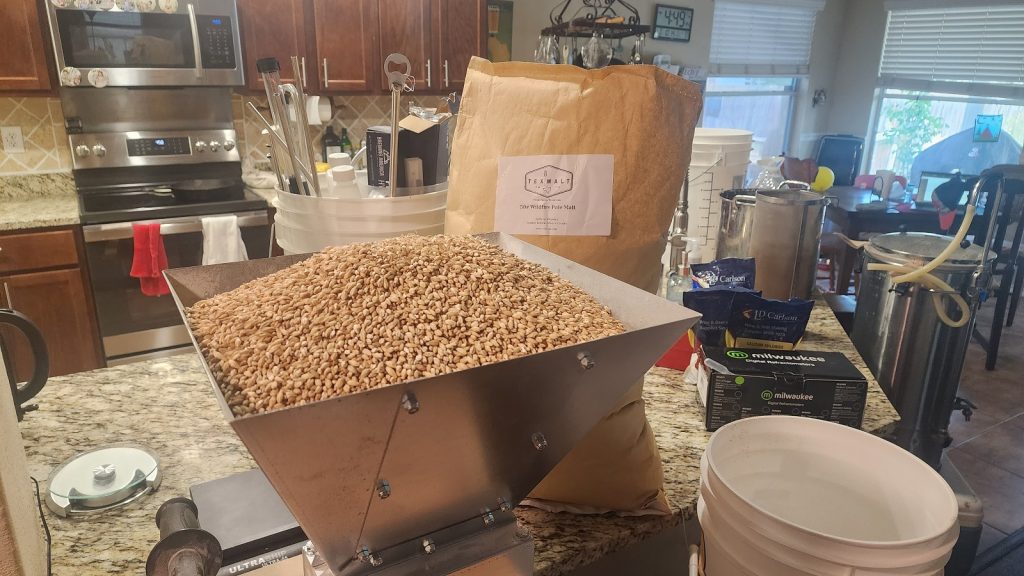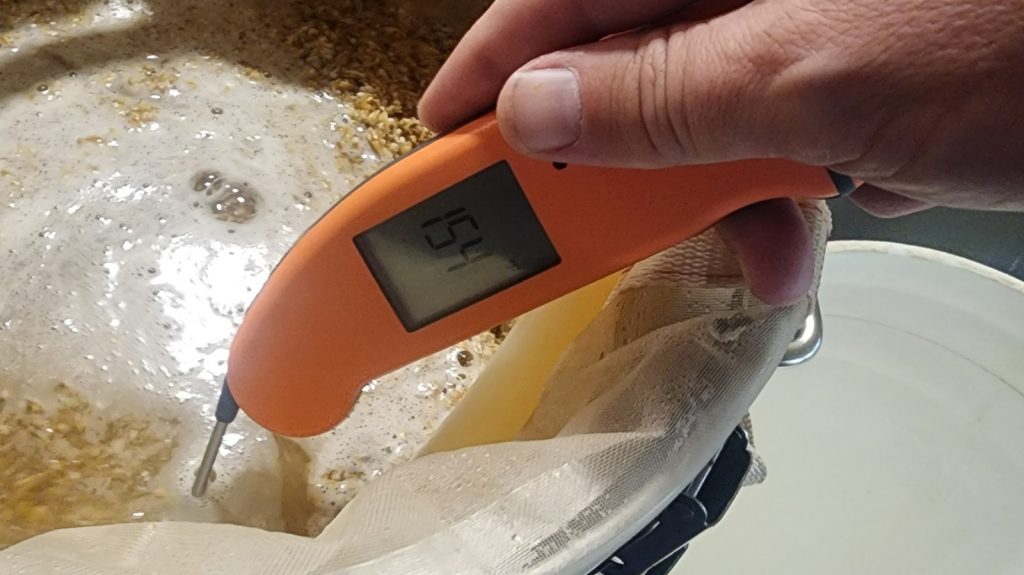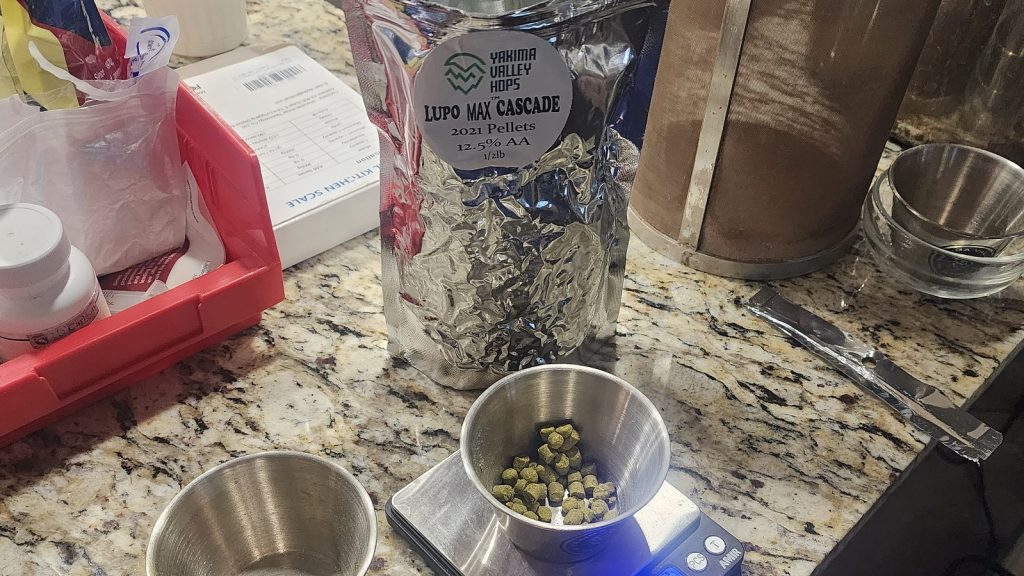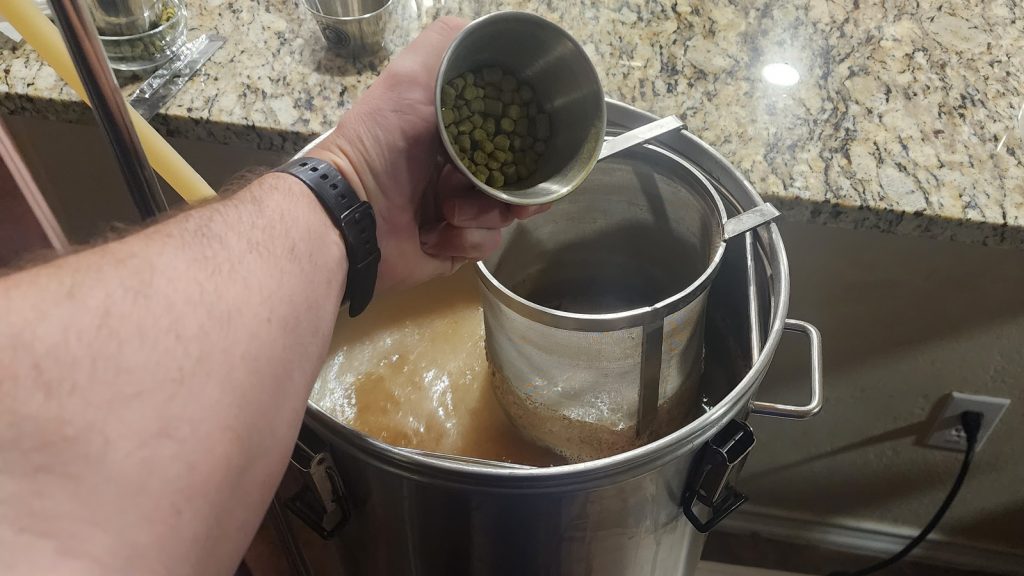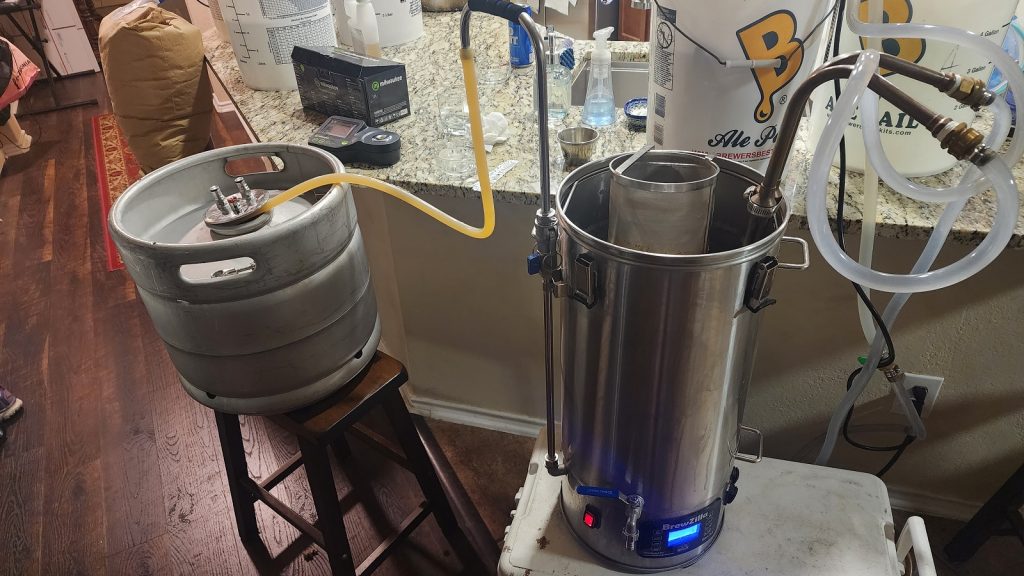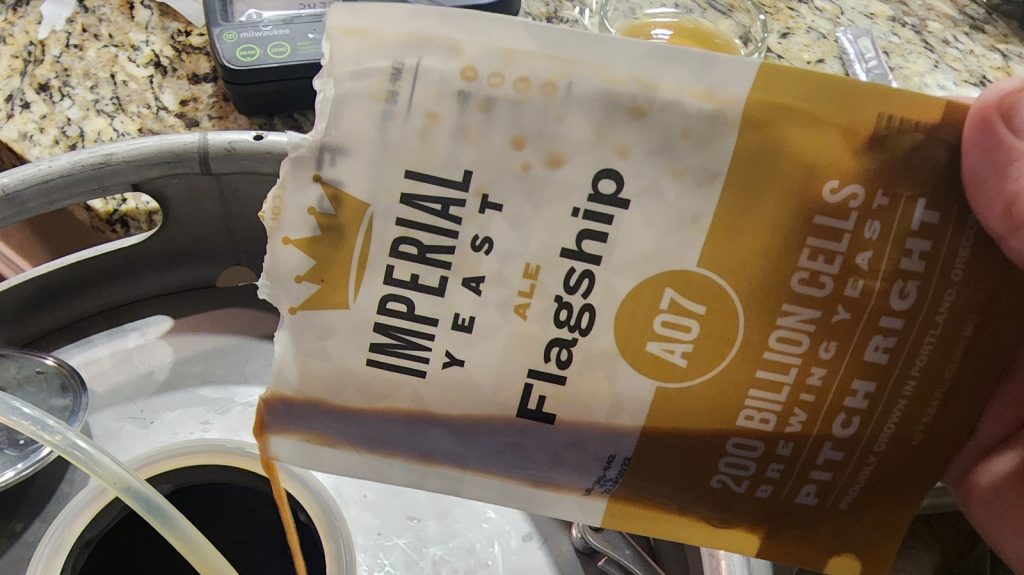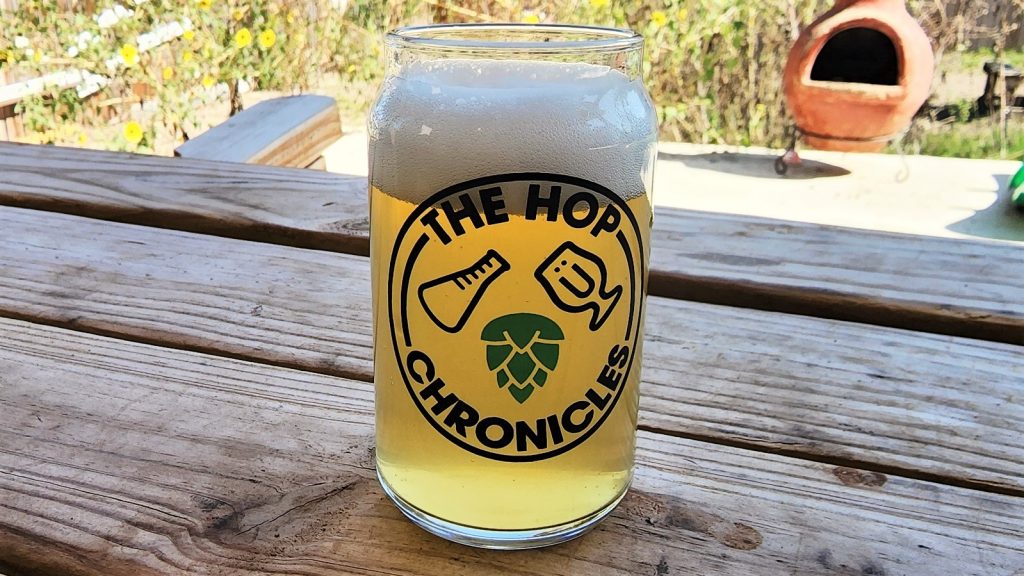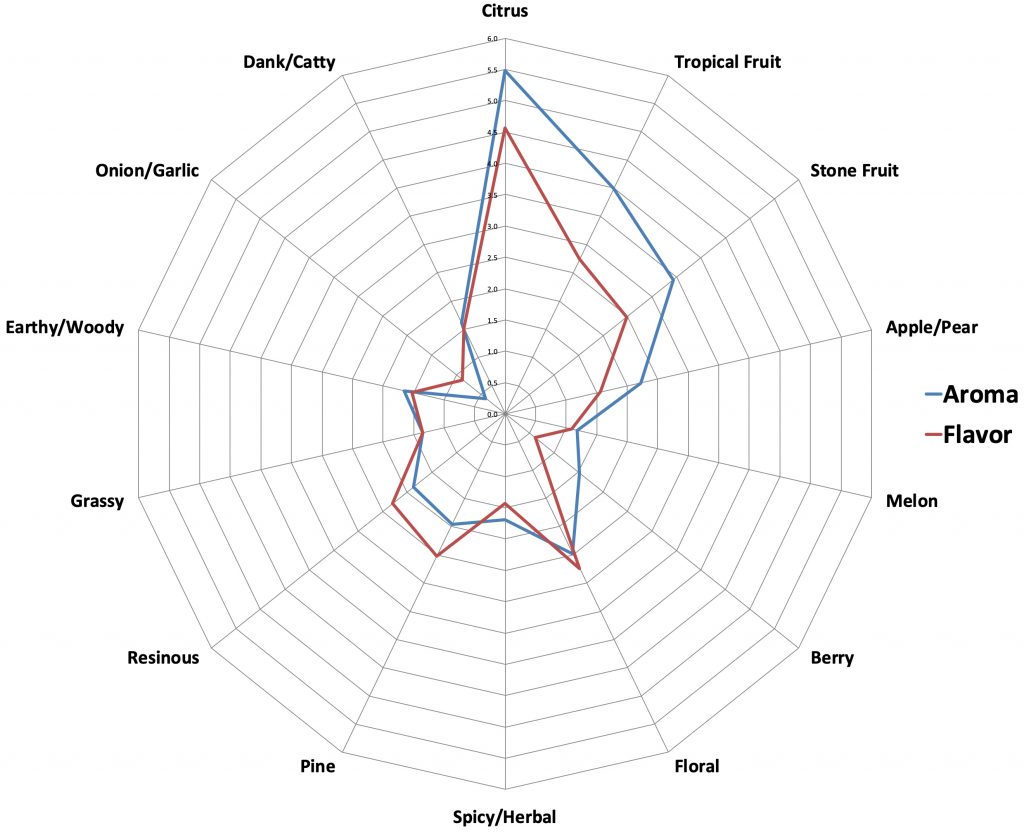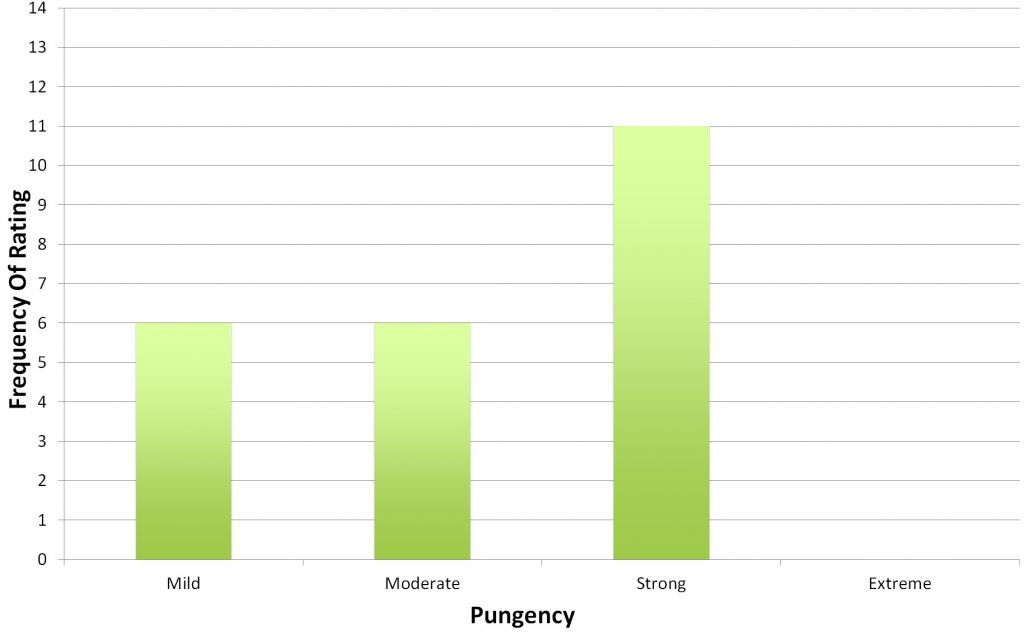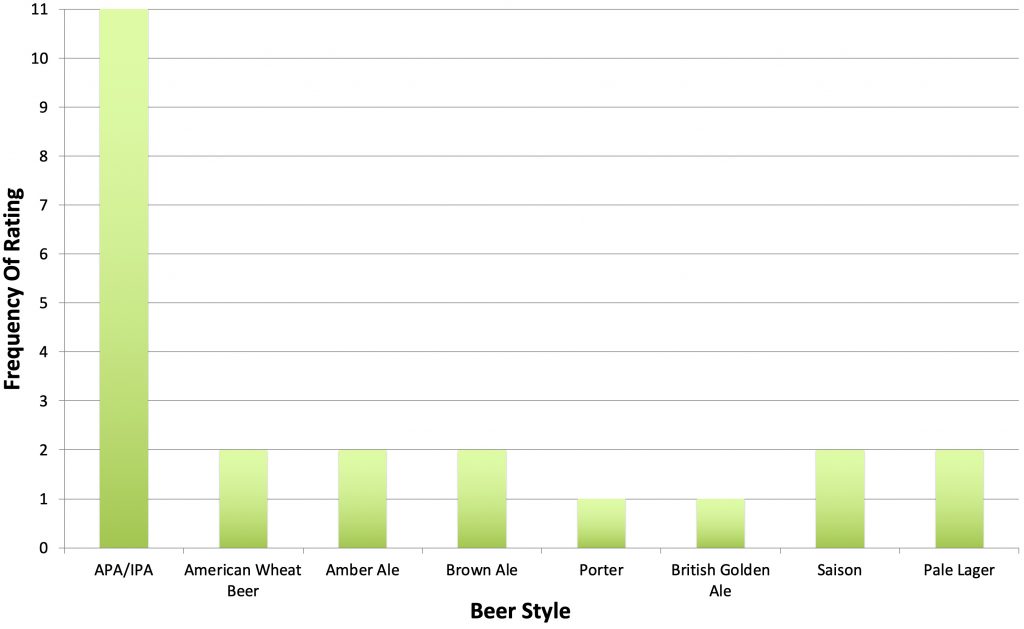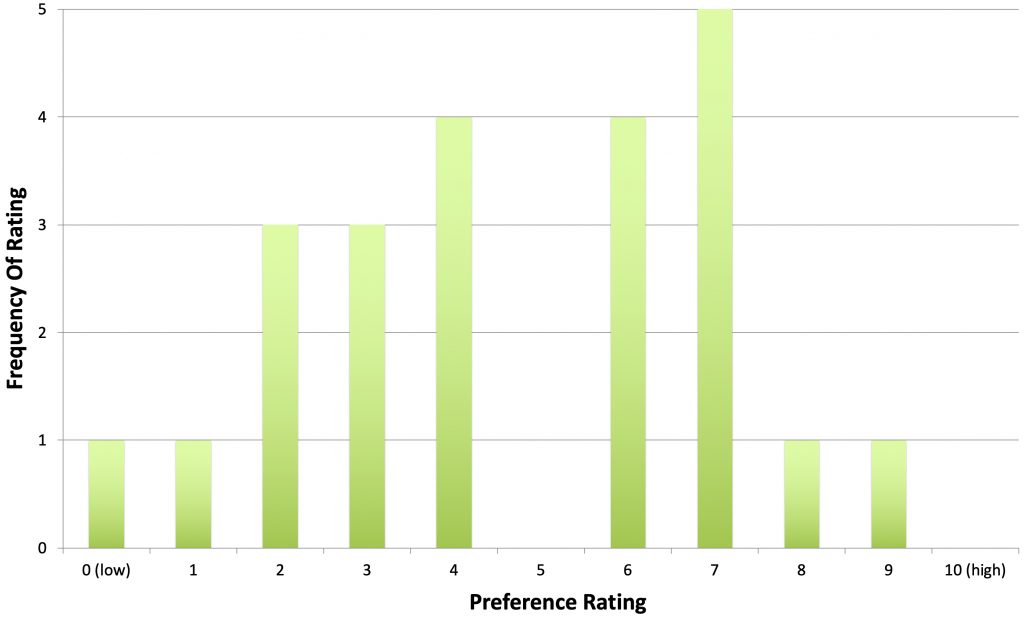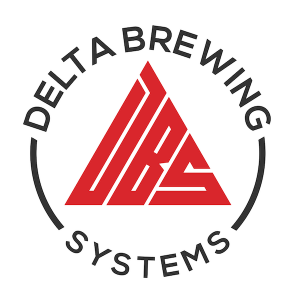Author: Will Lovell
Released in 1971 by Oregon State University’s hop breading program, Cascade quickly rose in popularity and is often credited as the variety that ultimately spurred the craft beer boom. Known for imparting beer with notes of grapefruit and pine, Cascade is synonymous with American craft beer, and Haas’ LUPOMAX version promises to deliver even more pungent character with less vegetal matter.
Alpha: 12.5%
Beta: 6.0 – 7.5%
Cohumulone: 30 – 35% of alpha acids
Total Oil: 0.8 – 2.5 mL/100g
Myrcene: 45 – 60%
Humulene: 14 – 20%
Caryophyllene: 5 – 9%
Farnesene: 6 – 9%
Linalool: 0.3 – 0.6%
ß-Pinene: 0.5 – 0.8%
Parentage: Open seeding, Fuggle mother
Like most brewers, Cascade holds a special place in my heart and I’ve used it numerous times over the years. When Haas announced they were releasing a LUPOMAX version of this classic hop, I couldn’t wait to get my hands on some!
| MAKING THE BEER |
I went with our standard Hop Chronicles Pale Ale recipe for this batch, making minor adjustments to the kettle hop additions to ensure proper bitterness.
Cascade LUPOMAX Pale Ale
Recipe Details
| Batch Size | Boil Time | IBU | SRM | Est. OG | Est. FG | ABV |
|---|---|---|---|---|---|---|
| 5.5 gal | 60 min | 39.5 | 6.4 SRM | 1.059 | 1.009 | 6.56 % |
| Actuals | 1.059 | 1.009 | 6.56 % | |||
Fermentables
| Name | Amount | % |
|---|---|---|
| Wildfire Pale Malt | 10 lbs | 83.33 |
| Vienna Malt | 2 lbs | 16.67 |
Hops
| Name | Amount | Time | Use | Form | Alpha % |
|---|---|---|---|---|---|
| Cascade LUPOMAX | 10 g | 60 min | Boil | Pellet | 12.5 |
| Cascade LUPOMAX | 15 g | 20 min | Boil | Pellet | 12.5 |
| Cascade LUPOMAX | 21 g | 5 min | Boil | Pellet | 12.5 |
| Cascade LUPOMAX | 56 g | 2 min | Boil | Pellet | 12.5 |
| Cascade LUPOMAX | 56 g | 4 days | Dry Hop | Pellet | 12.5 |
Yeast
| Name | Lab | Attenuation | Temperature |
|---|---|---|---|
| Flagship (A07) | Imperial Yeast | 77% | 32°F - 32°F |
Notes
| Water Profile: Ca 92 | Mg 0 | Na 0 | SO4 152 | Cl 49 |
Download
| Download this recipe's BeerXML file |
The night prior to brewing, I collected the full volume of RO water, which I adjusted to my desired mineral profile before weighing out and milling the TexMalt Wildfire Pale malt.
When the water was properly heated the next morning, I incorporated the grains then checked to ensure the mash was at my desired temperature.
During the mash rest, I prepared the kettle hop additions.
Once the 60 minute mash was complete, I removed the grains and proceeded to boil for 60 minutes, adding hops at the times stated in the recipe.
When the boil was complete, I quickly chilled the wort then transferred it to a sanitized Kegmenter.
A refractometer reading showed the wort was at my target OG.
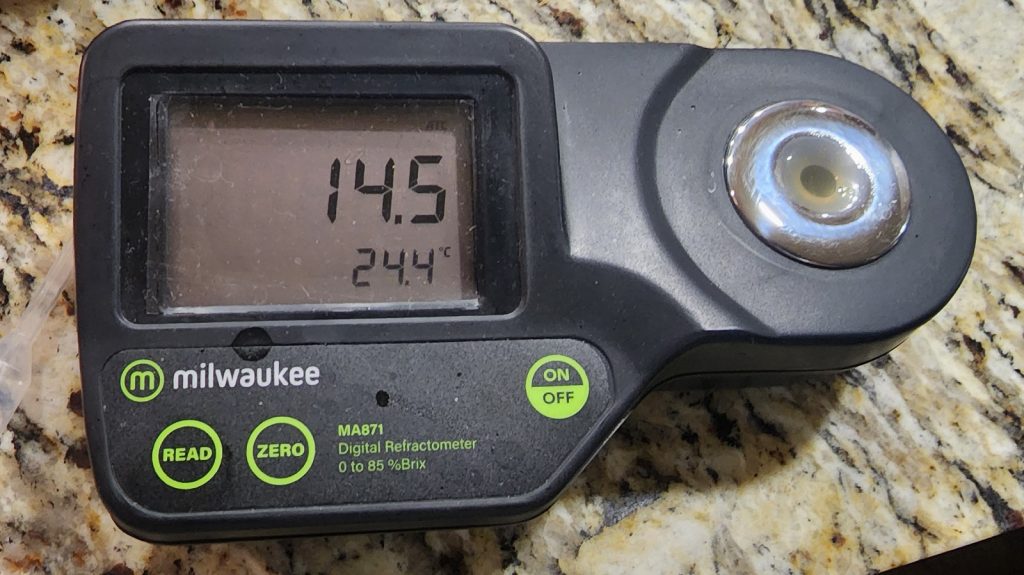
After transferring the wort to a sanitized fermented, I direct pitched a single pouch of Imperial Yeast A07 Flagship.
The beer was left to ferment at 66°F/19°C for a week before I took a hydrometer measurement confirming FG was reached.
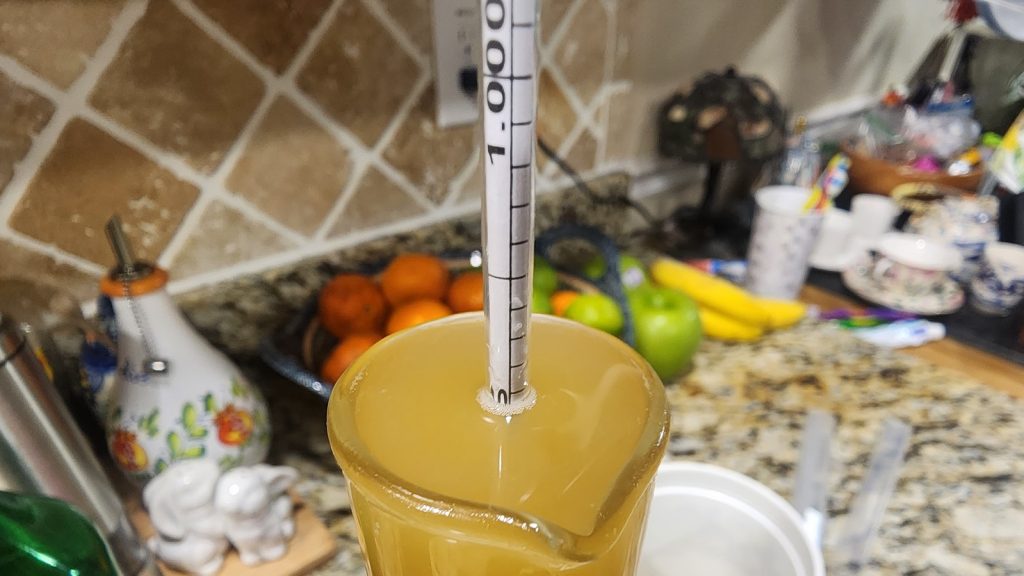
With fermentation complete, I cold crashed the beer overnight then pressure-transferred it to a CO2 purged keg, which I placed in my kegerator and burst carbonated overnight before reducing the gas to serving pressure. After a week of conditioning, it was ready to serve to blind tasters.
| METHOD |
Participants were instructed to focus only on the aromatic qualities of the beer before evaluating the flavor. For each aroma and flavor descriptor, tasters were asked to write-in the perceived strength of that particular characteristic on a 0-9 scale where a rating of 0 meant they did not perceive the character at all and a 9 rating meant the character was extremely strong. Once the data was collected, the average rating of each aroma and flavor descriptor was compiled and analyzed.
| RESULTS |
A total of 23 people participated in the evaluation of this beer, all blind to the hop variety used until after they completed the survey. The average aroma and flavor ratings for each descriptor were plotted on a radar graph.
Average Ratings of Aroma and Flavor Perceptions
The 3 characteristics endorsed as being most prominent by participants:
| Aroma | Flavor |
| Citrus | Citrus |
| Tropical Fruit | Tropical Fruit + Floral (tie) |
| Stone Fruit | Stone Fruit + Pine (tie) |
The 3 characteristics endorsed as being least prominent by participants:
| Aroma | Flavor |
| Onion/Garlic | Berry |
| Melon | Onion/Garlic |
| Grassy | Melon |
Next, participants were asked to rate the pungency/strength of the hop.
Tasters were then instructed to identify beer styles they thought the hop would work well in.
Finally, participants were asked to rate how much they enjoyed the hop character on a 1 to 10 scale.
My Impressions: I experienced a good bit of nostalgia when drinking this beer, as I felt it possessed everything I expect from a Cascade hopped Pale Ale, namely grapefruit, floral, and pine with a solid yet palatable bitterness.
| CONCLUSION |
As the variety many view as being the spark behind the craft beer boom, Cascade unquestionably has its place in the American hop hall of fame, and its awesomeness is evidenced by the fact it continues to be widely used 50 years after its release. Prized for its ability to contribute pleasant grapefruit and piney notes to beer, Cascade is perhaps most known for its use in American Pale Ale and IPA, and Haas’ LUPOMAX version lends more pungency with less vegetal matter.
The most prominent aroma and flavor characteristics noted by people who evaluated a Pale Ale made solely with Cascade LUPOMAX were citrus, tropical fruit, floral, stone fruit, and pine, while onion/garlic, melon, berry, and grassy were rated the lowest, all of which aligns with existing descriptors for Cascade. Predictably, APA/IPA was the style most tasters felt this hop would work well in, though a smattering of other styles were also endorsed including American Wheat Beer, Brown Ale, and even Saison.
Interestingly, tasters were fairly evenly split on their preference for this single-hop Cascade LUPOMAX Pale Ale, and I wonder if this has to do with the fact it had a more “classic” hop character when compared to beers made with newer hop varieties. Either way, I was a big fan and enjoyed the trip down memory lane drinking this beer took me on. I’ll definitely be brewing with Cascade LUPOMAX in future, both on its own as well as in conjunction with other varieties in various styles.
Cascade LUPOMAX hops are available now at Yakima Valley Hops, get some while you can! If you have any thoughts on this variety, please feel free to share them in the comments section below.
Support Brülosophy In Style!
All designs are available in various colors and sizes on Amazon!
Follow Brülosophy on:
FACEBOOK | TWITTER | INSTAGRAM
If you enjoy this stuff and feel compelled to support Brulosophy.com, please check out the Support page for details on how you can very easily do so. Thanks!



